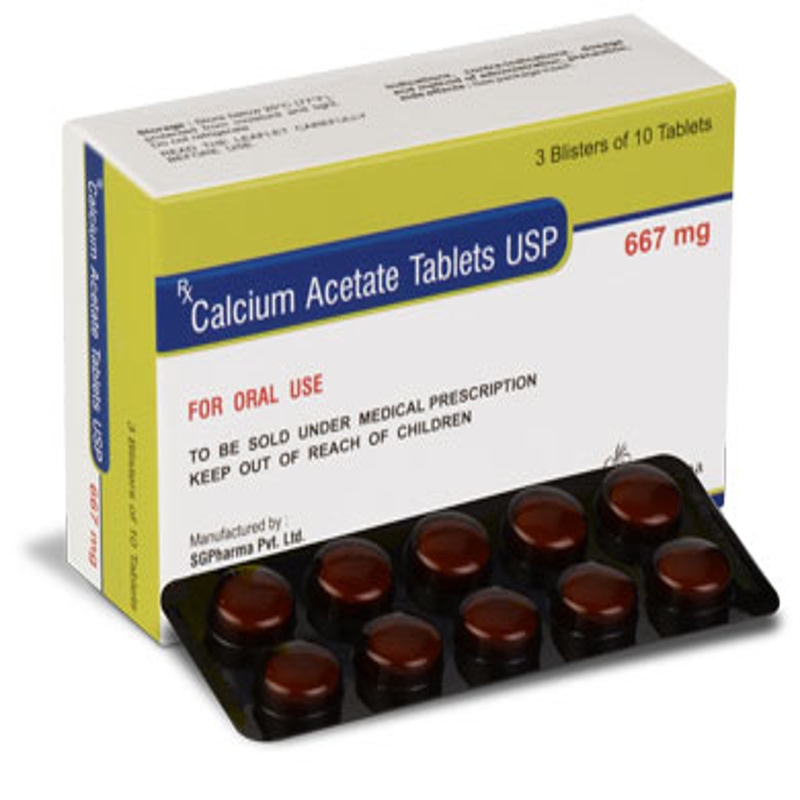-
Categories
-
Pharmaceutical Intermediates
-
Active Pharmaceutical Ingredients
-
Food Additives
- Industrial Coatings
- Agrochemicals
- Dyes and Pigments
- Surfactant
- Flavors and Fragrances
- Chemical Reagents
- Catalyst and Auxiliary
- Natural Products
- Inorganic Chemistry
-
Organic Chemistry
-
Biochemical Engineering
- Analytical Chemistry
-
Cosmetic Ingredient
- Water Treatment Chemical
-
Pharmaceutical Intermediates
Promotion
ECHEMI Mall
Wholesale
Weekly Price
Exhibition
News
-
Trade Service
- Accelerated approval after being included in the priority review and clinically urgent need for new drugs from abroad - Ginitinib is the first and currently the only FLT3 inhibitor approved by China's State Drug Administration for the treatment of recurring or refractic acute myeloid leukemia February 4, 2021 - Astellas Pharmaceutical Group (TSE:4503, President and CEO: Dr. Ankawa Jianshi, "Astellas") today announced that China's State Drug Administration (NMP) A) conditional approval of the Suitable Gatan ® (English trade name XOSPATA®, the generic name Fumaritini tablets, gilteritinib fumarate tablets, collectively known as Ginitini) for The treatment used well-proven testing methods to detect relapse (disease recurrence) or refractic (therapeutic resistance) acute myeloid leukemia (AML) adult patients with FMS-like tyrosine kinase 3 (FLT3) mutations.
, which was approved by China's State Drug Administration in July 2020 and included in the third batch of clinically urgent overseas new drugs in November 2020, has been approved under the accelerated channel.
Jun, Director of the Institute of Hematological Oncology in Harbin, China, said: "Patients with relapsed or incurable acute myeloid leukemia with FLT3 mutations urgently need new treatment options.
As the first target treatment drug approved in China for the treatment of relapsed or resuscutable acute myeloid leukemia with FLT3 mutation, Ginitinib, approved under the accelerated channel, can enable patients in China to quickly obtain innovative treatment options.
" Ginitini has shown significant inhibition of two FLT3 mutations, FLT3 internal tandem duplication, FLT3-ITD, and FLT3 tyrosine kinase domain (FLT3 tyrosine kinase domain, FLT3-TKD).
FLT3-ITD mutation affects about 30% of patients with acute myeloid leukemia, with a higher risk of recurrence and shorter overall survival than wild type FLT3.
FLT3-TKD mutation affects about 7% of patients with acute myeloid leukemia3.
in the treatment of acute myeloid leukemia, even after recurrence, the status of the FLT3 mutation may change.
, identifying a patient's FLT3 mutation at the time of recurrence can help identify appropriate and potential target treatments.
Jianxiang, Deputy Director of the Institute of Hematology, Chinese Academy of Medical Sciences, said: "The FLT3 mutation has a very negative effect on the prognosis of patients with acute myeloid leukemia.
approved the use of ginib with the support of adequate efficacy and safety data, providing an important new option for patients with relapsed or resusable acute myeloid leukemia with FLT3 mutations in China.
Professor Wu Depei, Chairman of the Blood Credit Committee of the Chinese Medical Association, said: "In recent years, the diagnosis and treatment of malignant tumors in the blood system has developed rapidly, and the application of various new drugs/therapies has brought some diseases , such as lymphoma and myeloma , into the era of 'no chemotherapy'.
Gilitinistinist has been approved to treat recurring or re treatable acute myeloid leukemia with FLT3 mutations, which will also promote the treatment of acute myeloid leukemia into the era of 'no chemotherapy'.
" acute myeloid leukemia is a tumor that affects the blood and bone marrow, and its incidence increases with age.
myeloid leukemia is one of the most common leukemias in adults.
estimates that about 80,000 people in China are diagnosed with leukemia each year. Dr Andrew Krivoshik, Senior Vice President and Head of Global Therapeutics at
Astellas Oncology Development, said: "Patients with relapsed or refractory acute myeloid leukemia with FLT3 mutations are in urgent need of new treatments and now have a median survival period of less than six months after saving chemotherapy.
approval of Gigitinib is an important step in providing doctors and patients in China with new treatment options.
Astellas is committed to developing innovative and breakthrough solutions for treatment options for incurable tumors, and The approval of Gilitini in China is part of our commitment and we look forward to it.
" approval is based on the results of the third ADMIRAL trial, which has been published in the New England Journal of Medicine.
treatment significantly extended total survival (OS) compared to patients receiving rescue chemotherapy.
the median lifetime of patients treated with ginib was 9.3 months, while those who received rescue chemotherapy were 5.6 months.
additional Chinese patient pharmacodynamic data from the ongoing Phase III COMMODORE trial, which was also reviewed.
the safety of 319 patients who received at least one dose of 120 mg of gyridinib per day and who carried FLT3 mutations with recurring or refragsed acute myeloid leukemia were evaluated11.
the most common adverse reactions (incident ≥ 10%) in all grades after receiving gini were elevated alanine aminotransferase (ALT) (25.5. 4%), aspartate aminotransferase(aspartate aminotransferase, elevated AST (24.5%), anemia (20.1%), plate small plate reduction (thyroid reduction) 13.5%), neutral granulocyte reduced fever (12.5%), reduced platelet count (12.2%), diarrhea (12.2%), nausea (11.3%), elevated hemolytic phosphatase (11%), fatigue (10.3%), reduced white cell count (10%), and elevated creatine phosphatase (10%).
patients who received ginibs, there was a case of adverse reaction differentiation syndrome that led to death.
the most common serious adverse reactions in ≥3%) were neutropenia (Febrile Neutropenia, 7.5%), elevated alanine amino transferase (ALT) (3.4%), and elevated acetone amino transaminase (AST) (3.1%).
other clinically significant adverse reactions, including electrostatical QT interstitia extension (0.9%) and reversible post-encephalopathy syndrome (0.3%).
impact of this approval on performance is reflected in Astellas' financial forecast for the current fiscal year (ended March 31, 2021).
The ADMIRAL Trial Phase III ADMIRAL Trial (NCT02421939) is a global multi-center open randomized controlled study to compare the efficacy of ginib and resusctic chemotherapy in adult patients with recurring or resuscable FLT3 mutation AML.
the main compound endpoints of the trial were total lifetime (OS) and full remission (CR/CRh) with full or partial hematological recovery.
the study eventually included 371 patients with blood or bone marrow who detected a recurrence or recurring AML mutation in FLT3.
subjects were randomly assigned at a 2:1 scale to receive ginib (120 mg) or resusced chemotherapy, respectively.
The COMMODORE Trial Phase III COMMODORE Trial (NCT03182244) is an ongoing multi-center open randomized controlled study used in China and other countries to compare the efficacy of ginib and resuscative chemotherapy in adult patients with recurring or resuscable FLT3 mutation AML.
the main endpoint of the experiment is total lifetime (OS).
the study will also compare ginibs with rescue chemotherapy for event-free survival (event-free survival, EFS) and full remission rates (complete remission, CR rate) to assess safety and determine overall effectiveness.
subjects were randomly assigned at a 1:1 scale to receive ginni (120 mg) or resusced chemotherapy, respectively.
about Gilteritinib, a drug discovered by Astellas in collaboration with Kotobuki Pharmaceuticals, Astellas has exclusive rights to develop, manufacture and commercialize Ginitinib globally.
Gretini (product name: Xospata®) has been made available to patients in the United States, Japan, parts of the European Union and other countries and regions for the treatment of adult patients with recurring or resusable acute myeloid leukemia with FLT3 mutations.
is an FMS-like tyrosine kinase 3 (FLT3) inhibitor that has significant inhibitory effects on FLT3-ITD and FLT3-TKD mutations.
FLT3-ITD is a common driving mutation, resulting in a high burden of disease and poor prognosmation.
about Astellas Astellas Pharmaceutical Group is a pharmaceutical company with operations in more than 70 countries and regions around the world.
, we are currently advancing Focus Area Research Strategies, which aim to address unsolved medical needs by focusing on physiological mechanisms and treatments to identify opportunities for ongoing research and development of new drugs.
the same time, we are looking beyond prescription drugs, combining our expertise and knowledge with cutting-edge technology from external partners in different fields to create ® medical solutions.
these efforts, Astellas is determined to be at the forefront of the changing healthcare industry, transforming scientific advances into patient values.
statements in this press release regarding current plans, estimates, strategies and beliefs, as well as other non-historical facts, are forward-looking statements regarding Astellas' future performance.
these statements are based on current assumptions and beliefs developed by management in conjunction with currently available information and involve known and unknown risks and uncertainties.
factors may cause actual results to differ materially from those discussed in the forward-looking statements.
These factors include, but are not limited to, (i) changes in general economic conditions and laws and regulations relating to the pharmaceutical market, (ii) currency fluctuations, (iii) delays in the launch of new products, (iv) Astellas' inability to effectively sell existing products and new products, (v) Astellas' inability to continue to effectively research and develop products accepted by customers in competitive markets, and (vi) third party infringement of Astellas' intellectual property rights.
information contained in this press release regarding medicines, including products currently under development, does not constitute advertising or medical advice.
: Center for Drug Evaluation, NMPA. List of priority review varieties. Available at: Last accessed December 2020.Center for Drug Evaluation, NMPA. Notice on the release of the third batch of clinically urgently needed overseas new drugs. Available at: Last accessed December 2020.Patel JP, Gönen M, Figueroa ME, et al. Prognostic relevance of integrated genetic profiling in acute myeloid leukemia. N Engl J Med. 2012; 366(12):1079-89.Whitman SP, Archer KJ, Feng L, et al. Absence of the wild-type allele predicts poor prognosis in adult de novo acute myeloid leukemia with normal cytogenetics and the internal tandem duplication of FLT3: a Cancer and Leukemia Group B study. Cancer Res. 2001; 61(19):7233-7239.Whitman SP, Maharry K, Radmacher MD, et al. FLT3 internal tandem duplication associates with adverse outcome and gene- and microRNA-expression signatures in patients 60 years of age or older with primary cytogenetically normal acute myeloid leukemia: a Cancer and Leukemia Group B study. Blood. 2010; 116(18):3622-3626.Warren M, et al. Clinical impact of change of FLT3 mutation status in acute myeloid leukemia patients. Mod Pathol. 2012; 25(10):1405-12.American Cancer Society. What is Acute Myeloid Leukemia (AML)? Available







